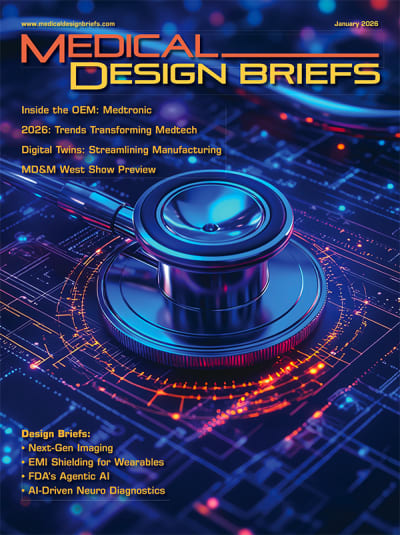
Strategic Supply & Marketing, Nordion
Nordion is one of the pioneers in using Cobalt-60 for gamma sterilization. The company has been building irradiators and shipping Cobalt sources around the world for more than 50 years and continues to be a leader in the space. Today, its customers include both contract sterilizers and medical device manufacturers. Nordion also makes specialized Cobalt-60 sources for use in the treatment of cancer.
To find out more about Cobalt-60, MDB recently spoke with Richard Wiens, who leads a team dedicated to maintaining a reliable supply of Cobalt-60 for the long term. His team manages existing supply relationships and builds new ones and currently has more than a dozen projects under way.
MDB: Why has gamma irradiation been so successful as a sterilization modality?
Richard Wiens: The heart of gamma is its simplicity. You really only have to worry about one variable, which is the time the product is exposed to the Cobalt source. Given gamma’s long history, it is well understood in the industry and this knowledge is embodied in the standards and their application. Add to this a large network of sterilization providers and you have a robust, cost effective modality that is responsible for sterilizing nearly 40 percent of all single use medical devices.
MDB: I understand there is growing interest in x-ray as an alternative to gamma. Why would someone switch from gamma to x-ray?
Wiens: I think everyone in the industry supports the idea of using the appropriate sterilization modality for the job. As such, you would only consider switching modalities if you have a compelling reason to do so. The challenge with x-ray as a sterilization modality is that there is so little real-world experience and limited commercial scale, so any advantages that exist on paper have not yet been proven out. As commercial x-ray facilities are constructed and operated, we’ll see how they perform. A lot of the talk around x-ray in the marketplace today is the result of unfounded fear around the long-term availability of Cobalt, based on some inaccurate information.
MDB: Tell me more about Cobalt supply. Is there a shortage? What are the long-term prospects?
Wiens: Well, the first thing to know is that there are about 22 reactors producing Cobalt today, which is approximately a 20 percent increase from just five years ago, and five companies, including Nordion, that ship finished Cobalt sources to customers. As with Nordion, much of the supply chain has been around for a long time and is well established.
With regards to the current supply situation — we estimate that there is about 5 percent less Cobalt globally today than the market wants, which is the result of some events that took place starting in 2014. Part of the global supply chain — not Nordion’s — was disrupted and created a short-term shortage. In addition, one of the reactors that produces Cobalt was shut down temporarily for refurbishment, although it will begin producing Cobalt again in 2021. All of this had the effect of reducing supply capacity. At the same time, market growth outpaced its historic rate, meaning higher than expected demand.
The good news is that Nordion has always operated with the philosophy that we will manage inventory and invest in supply to meet long-term demand, and we were able to fill the majority of this gap. Over time, the balance of the global supply chain has started to recover.
Nordion also helped redirect Cobalt-60 from suppliers in India and China, who generally serve regional markets and did not need the Co-60 locally, to the broader global market where it was needed. The result of this is that we expect the industry to only be slightly under supplied for the coming years.
Over the long term, some existing Cobalt-producing reactors will reach the end of their working lives, but Nordion has always been planning to replace that supply. Nordion will continue to invest significant money and resources in not only replacing that supply but also supporting industry growth as we have continually done for decades.
MDB: Can you provide some examples of those investments?
Wiens: In 2017, our Russian suppliers expanded production capacity, an initiative that will begin to increase supply starting in 2022. In addition, Nordion acquired IP around the production of Cobalt in Light Water Reactors, which comprise more than 80 percent of all operating reactors. We have an ongoing project with one of these reactor companies to develop technology for commercial deployment, starting in the U.S. Furthermore, we have a conversion project under way at the Darlington reactors in Ontario, and a feasibility study taking place with SNN in Romania for the Cernavoda reactors. All in all, we are looking at more than $100 million of investment across these projects over the next several years.
MDB: Given everything you have told me, what would your advice be to device manufacturers and other users of gamma who are looking at their sterilization options?
Wiens: I’ll go back to what I said earlier: pick the best modality for your product, but do so on the basis of real science, economics, and experience, and consider the risks associated with unproven technology. For me, the fact that companies continue to invest in gamma capacity by building new irradiators tells me that the industry has confidence in the modality, and that gamma will continue to be the workhorse of radiation sterilization for the healthcare industry for many years to come.
Nordion is a leading global provider of Cobalt-60, used in the sterilization and irradiation processes for the medical device, pharmaceutical, food safety, and high-performance materials industries, as well as in the treatment of cancer. Nordion supplies products to more than 40 countries around the world. Together with its sister companies, Sterigenics and Nelson Labs, Nordion is committed to its’ mission, Safeguarding Global Health®, with every critical Cobalt source and service it supplies.



